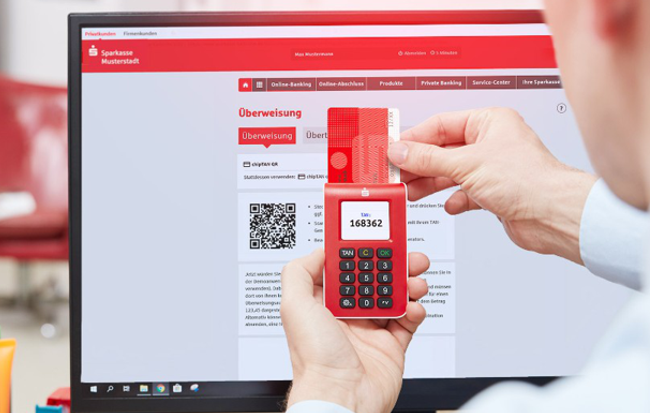online banking
Online banking, electronic banking (e-banking) or home banking includes all electronic banking transactions between the bank customer and the credit institution. Online banking uses electronic communication facilities and communication networks and requires an online connection. Generally , financial transactions are conducted from a personal computer( PC) over the Internet.
For security reasons, online banking uses the HTTPS protocol, which is equipped with security mechanisms, for online transmission instead of the Hypertext Transfer Protocol( HTTP). If the transaction takes place from a smartphone, a tablet PC or a mobile notebook, it is referred to as mobilebanking (M-banking).
National online transactions take place between two bank accounts that are uniquely identified by the International Bank Account Number( IBAN). International transactions take place via the SWIFTnetwork and the internationally standardized Bank Identifier Code( BIC). Online banking can be carried out using a personal identification number( PIN) and transaction number( TAN). In addition to this PIN/TAN procedure, the Home Banking Computer Interface( HBCI) was introduced by the German Banking Association as a standard for financial transactions that can be used to carry out secure transactions.
For data protection, online banking in Europe relies on HBCI, whereas the Open Financial Exchange( OFX) is used in the United States. Business transactions between private customers and credit institutions include account information, single and standing transfers, listing transactions, stock trading, etc. Critical parameters are network security, which uses encryption to prevent unauthorized access as well as manipulation of data. Unlike HBCI and OFX, which were developed for online banking between private customers and financial institutions, the Banking Communication Standard( BCS) is a standard for financial transactions between financial institutions and financial institutions.
As far as money transactions in the European Union are concerned, the EU has abolished the indexed TAN procedure for transfers from current accounts in September 2019. It will be replaced by the European Payment Service Directive (PSD2).

